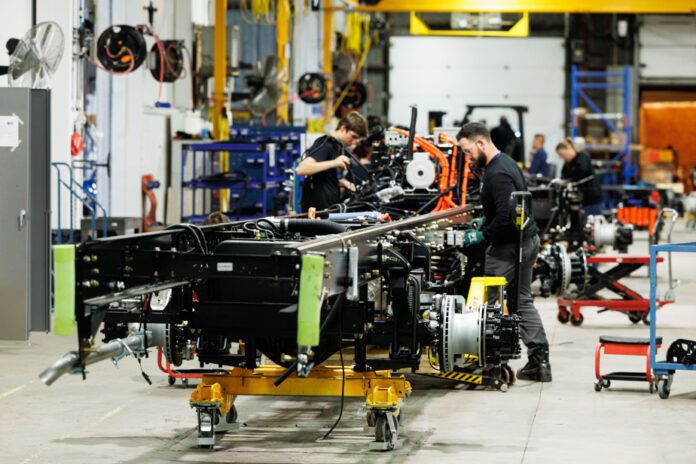The Quebec state is once again supporting the Lion Electric Company, which obtains 188 million (142 million US) from a group of investors including the Fonds de solidarité FTQ, Fondaction, Groupe Mach and the Saputo family.
Obtained through debt, these sums will mainly be used to finance the needs of the manufacturer of electric buses and trucks, in the process of completing new factories on both sides of the border.
“This financing transaction represents a key milestone for Lion, as it gives us the flexibility to execute on our growth plans,” President and CEO Marc Bédard said in a statement.
The Saint-Jérôme-based company expects to spend about $87 million (US$65 million) this year on its U.S. assembly site in Illinois and on its battery plant in Mirabel, in the Laurentians. Due to the financial situation of the Quebec company – which still shows operating losses more than two years after its year on the stock market – analysts feared a risk of dilution for shareholders in the event of a share issue.
This scenario seems ruled out, but Lion’s long-term debt, which reached 155 million (115 million US) will swell.
The financing operation is divided into several parts. Initially, Investissement Québec (IQ), the Fonds de solidarité FTQ and Fondaction together lend 98 million (74 million US) at a rate of 13%. This is not the first time that the financial arm of the Quebec state has offered money to Lion. He has already granted him a loan of 50 million for the construction of his complex in Mirabel. Nearly 20 million were also injected into the capital stock of the Quebec manufacturer.
Secondly, the Saputo family – the Mirella and Lino Saputo Foundation – as well as the real estate developer Groupe Mach agree to lend 90 million to Lion. These debentures bear interest at 11%.
“The diversity of investors, who come from both the public and private sectors, speaks to the importance of Lion in the electric vehicle sector,” said Mr. Bédard.
In the first quarter ended March 31, the company lost $15.6 million. Its revenue, however, was $54.7 million, more than double the same period last year.















